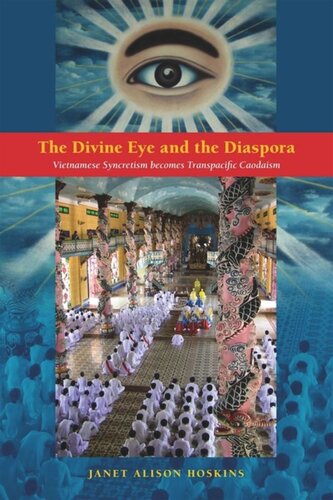

Most ebook files are in PDF format, so you can easily read them using various software such as Foxit Reader or directly on the Google Chrome browser.
Some ebook files are released by publishers in other formats such as .awz, .mobi, .epub, .fb2, etc. You may need to install specific software to read these formats on mobile/PC, such as Calibre.
Please read the tutorial at this link: https://ebookbell.com/faq
We offer FREE conversion to the popular formats you request; however, this may take some time. Therefore, right after payment, please email us, and we will try to provide the service as quickly as possible.
For some exceptional file formats or broken links (if any), please refrain from opening any disputes. Instead, email us first, and we will try to assist within a maximum of 6 hours.
EbookBell Team

5.0
68 reviewsWhat is the relationship between syncretism and diaspora? Caodaism is a large but almost unknown new religion that provides answers to this question. Born in Vietnam during the struggles of decolonization, shattered and spatially dispersed by cold war conflicts, it is now reshaping the goals of its four million followers. Colorful and strikingly eclectic, its “outrageous syncretism” incorporates Chinese, Buddhist, and Western religions as well as world figures like Victor Hugo, Jeanne d’Arc, Vladimir Lenin, and (in the USA) Joseph Smith, the founder of Mormonism.
The book looks at the connections between “the age of revelations” (1925-1934) in French Indochina and the “age of diaspora” (1975-present) when many Caodai leaders and followers went into exile. Structured in paired biographies to trace relations between masters and disciples, now separated by oceans, it focuses on five members of the founding generation and their followers or descendants in California, showing the continuing obligation to honor those who forged the initial vision to “bring the gods of the East and West together.” Diasporic congregations in California have interacted with New Age ideas and stereotypes of a “Walt Disney fantasia of the East,” at the same time that temples in Vietnam have re-opened their doors after decades of severe restrictions.
Caodaism forces us to reconsider how anthropologists study religious mixtures in postcolonial settings. Its dynamics challenge the unconscious Eurocentrism of our notions of how religions are bounded and conceptualized.